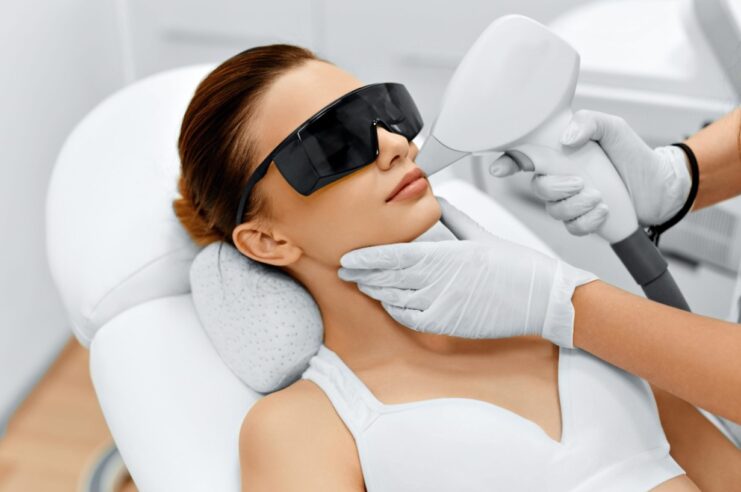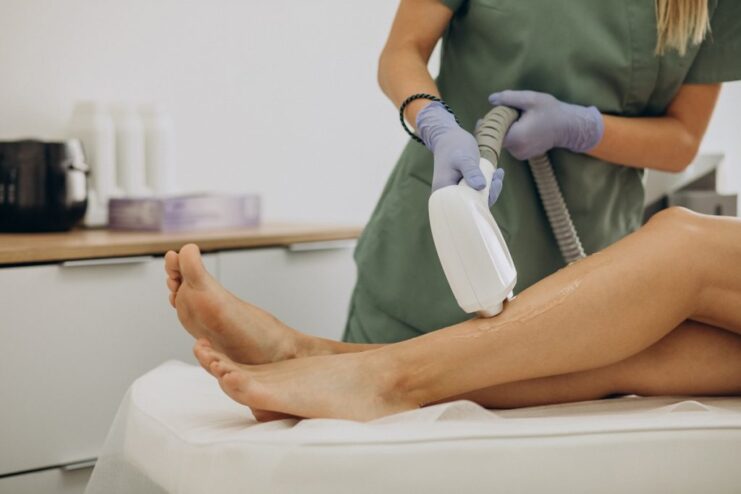Laser hair removal is a popular cosmetic procedure that uses concentrated light beams to remove unwanted hair.
While effective, it’s important to understand the potential health issues associated with this treatment.
Being informed about the risks and precautions can help ensure a safe and satisfying experience.
Potential Risks and Side Effects

Laser treatment can result in several side effects, some common and others more serious. Common side effects include skin irritation, redness, and swelling, which typically subside within a few hours to days.
These effects are usually mild and can be managed with soothing creams and cool compresses. However, it’s important to follow post-treatment care instructions to minimize these reactions.
There are also rare but serious risks associated with the procedure. These include burns, blisters, and eye injuries if proper precautions are not taken. For instance, protective eyewear is essential during facial treatments to prevent eye damage from the laser.
Pigment changes, such as hyperpigmentation (darkening of the skin) or hypopigmentation (lightening of the skin), can occur, particularly in individuals with darker skin tones. This is due to the laser’s interaction with melanin, which is more prevalent in darker skin.
Specific risks vary depending on the treated area and skin tone. For example, facial treatments may carry a higher risk of pigment changes due to the delicate nature of facial skin.
Treating sensitive areas like the bikini line could increase the likelihood of skin irritation and discomfort. Individuals with a history of keloid scars should exercise caution, as the laser can potentially trigger scar formation.
Medications and Supplements to Avoid
Certain medications and supplements can increase the risk of adverse effects from laser hair removal.
Prescription medications such as antibiotics (e.g., Tetracycline), Accutane, Retin-A, and blood thinners should be avoided as they can heighten skin sensitivity and the likelihood of complications.
Herbal supplements like St. John’s Wort and Gingko biloba can also pose risks due to their blood-thinning properties.
Vitamins and dietary supplements, including Vitamin A, Vitamin E, Omega-3 fatty acids, and garlic, should be avoided as they can affect skin healing and increase bleeding risk.
It’s essential to discuss all medications and supplements with your technician before undergoing treatment to prevent unwanted side effects and ensure the best possible outcome.
Pre-Treatment Precautions

Taking the right precautions before undergoing laser hair removal is essential for minimizing risks. Start by choosing a reputable clinic with certified professionals and FDA-approved equipment.
A thorough pre-treatment consultation is crucial, during which you should discuss your medical history and current medications with the technician.
Follow pre-treatment instructions carefully, such as avoiding sun exposure for at least two weeks before the procedure and refraining from hair removal methods like waxing or plucking, which can disrupt the hair follicle.
Ensuring that the technician is aware of your skin type and any sensitivities will help tailor the treatment to your needs, reducing the likelihood of adverse reactions. Proper preparation is key to a safe and successful laser hair removal experience.
The Bottom Line
Understanding and mitigating the risks associated with laser hair removal is vital for a safe treatment experience. By following guidelines and choosing reputable providers, you can achieve effective results while minimizing potential health issues.
Stay informed and proactive in your approach to laser hair removal at home for the best outcomes.

